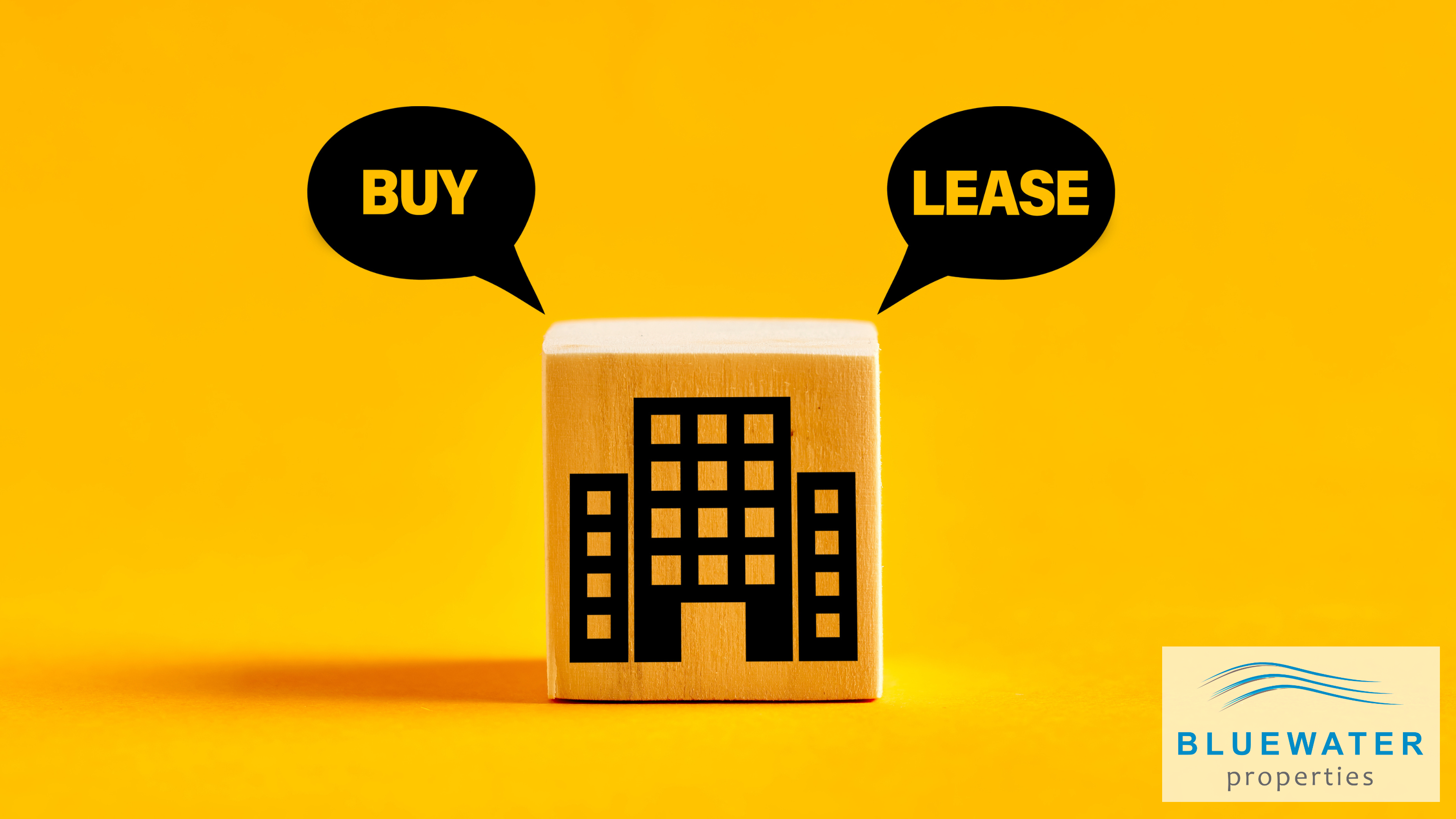
In the world of commercial real estate, one of the most crucial decisions business owners face is whether to lease or buy a property. Both approaches have their unique sets of advantages and potential challenges. In this article, we’ll break down the key factors to consider to make an informed decision that best fits your business’s needs in the current real estate climate.
Understanding the Basics
Leasing a commercial property means entering into a contract with a landlord to use the space for a specified period. Monthly payments are made, and at the end of the term, you have the option to renew the lease or vacate the premises.
Buying a commercial property involves purchasing the property outright. This means the business owner becomes the property owner, with the freedom to utilize the space as they wish, within legal and zoning restrictions.
Advantages of Leasing
- Flexibility: Leasing offers more flexibility for growing businesses or those that may need to downsize. Moving to a new location is easier if the business outgrows the space or if market conditions change.
- No Maintenance Hassles: The landlord typically handles major repairs and general maintenance, saving significant time, effort, and cost for the tenant.
- Lower Upfront Costs: Leasing doesn’t usually require a significant upfront investment. This allows businesses to invest capital into other areas, such as equipment, staff, or marketing.
Advantages of Buying
- Asset Appreciation: Real estate often increases in value over time. If the property appreciates, the business stands to make a profit upon selling it.
- Stability: Owning a property provides a fixed location for the business. It also offers predictable costs, unlike leasing where rental rates can increase.
- Extra Income: If the property has more space than the business needs, the excess can be leased out to generate additional income.
Leasing Vs. Buying in Today’s Market
The current real estate climate plays a significant role in this decision. With the effects of the COVID-19 pandemic still influencing the market, flexibility is key. Many businesses have had to adapt to changing conditions quickly, and leasing offers the agility to do so.
However, it’s also worth noting that the economic uncertainties have made property prices more negotiable, and interest rates are relatively low. These factors could make buying a more attractive option for businesses with the capital to invest and a long-term plan in place.
There’s no one-size-fits-all answer to the question of leasing versus buying commercial property. The best decision depends on various factors, including your business’s financial situation, long-term plans, and current real estate market conditions. At Bluewater Properties, we are here to help you navigate this complex decision with personalized consultation and real estate services. Contact us today; let’s discuss what’s best for your business.



